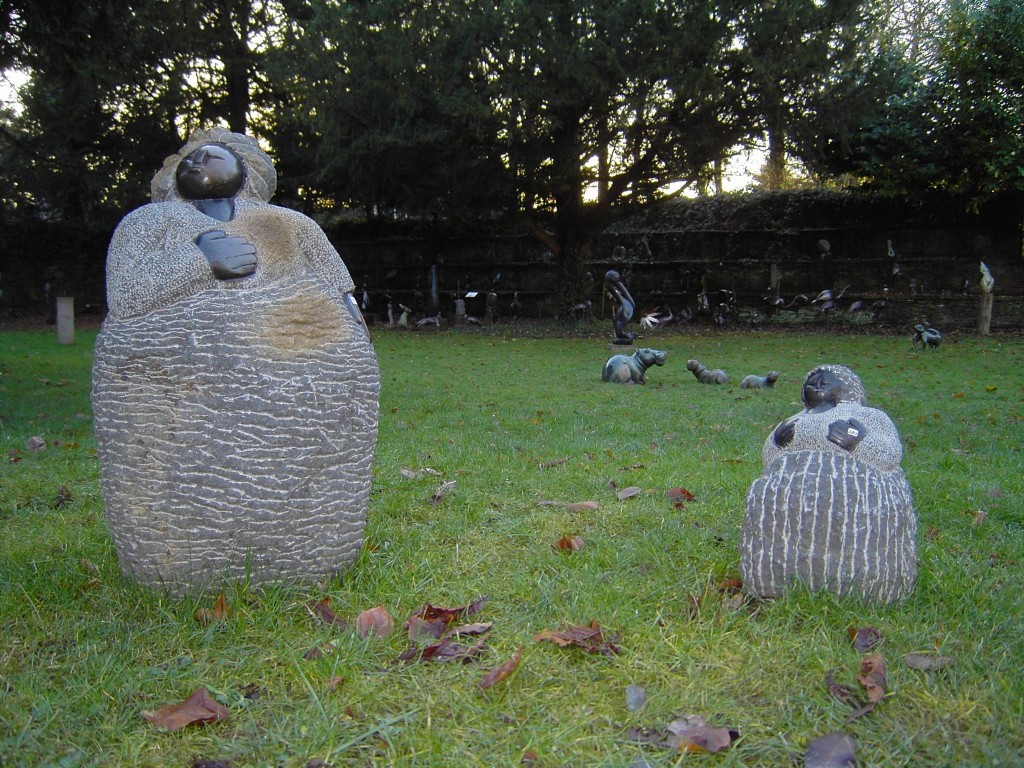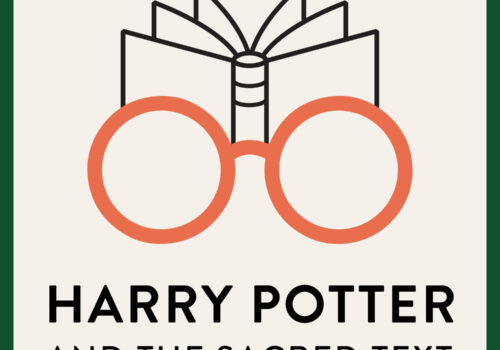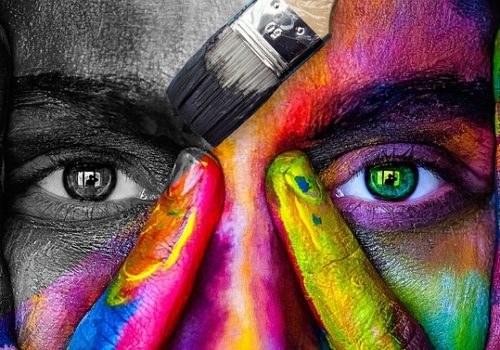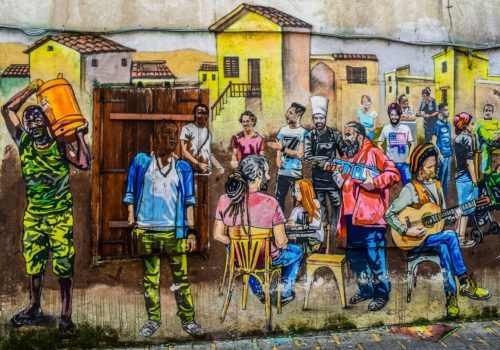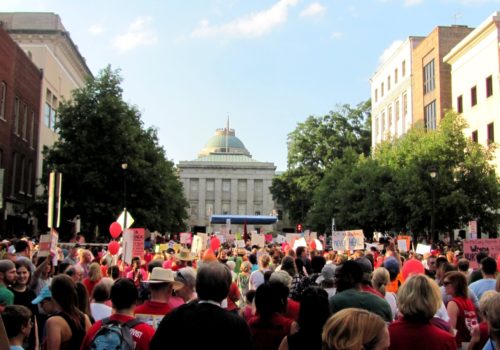Download PDF: Machinga, Grassroots Healing
Abstract
This paper is a reflection on a group of healing and reconciliation activities collectively called RECORE. These activities are being implemented at the grassroots level in one district of Manicaland Province, Zimbabwe. RECORE encompasses healing and reconciliation activities that have ecclesial, spiritual, socio-economic, and political dimensions; hence, the activities address survivors’ needs in manifold ways. Political violence and conflict fracture society and ruin human life; thus, effective healing and reconciliation activities blend the transformation of unsafe communities into safer communities with attention to individual survivors’ brokenness and needs. As strategies towards healing and reconciliation, RECORE activities create a supportive environment that helps survivors in affected communities to rebound and reclaim functional wholeness after their exposure to political violence. RECORE helps survivors transform pain and hurt into positive, constructive energies. By participating in RECORE activities, communities respond to the debilitating effects of political violence and conflict by REdirecting, COmmunicating, and REbuilding.
The contexts for this paper are twofold. The first is my family’s experience as survivors when we lost our maternal grandfather and uncle due to politically motivated violence in a rural area of Zimbabwe. The two were called to a political base,1 where they were physically assaulted, and left to die. Over the years, it was heartbreaking to watch my grandmother, uncles, and aunts struggling to recover from this tragedy. This experience stirred in me the desire to be present and journey with survivors as they work on traumas and go through recovery. The second context is my experience as a pastoral psychotherapist in interacting and working with survivors of political violence in Zimbabwe. My interaction with survivors in three districts shed light on survivors’ needs and responses. Survivors in each of the three districts reacted and responded in wide-ranging ways. This is because healing and reconciliation processes are unique to individuals or societies and are profoundly influenced by cultural and socio-political backgrounds; therefore, experienced differently. In this paper, I reflect on a set of psycho-social and spiritual activities, collectively named RECORE.
The word RECORE itself is an abbreviation that represents REdirect, COmmunicate, REbuild; thus RECORE. RECORE activities are being implemented to help mend brokenness and rebuild relations in one of the wards in Manicaland Province, Zimbabwe. For confidentiality purposes, I will refer to this ward pseudonymously as Ward Rio. While there is no single healing and reconciliation strategy, a multilayered approach which happens both at the personal and communal levels yields better holistic outcomes and RECORE is one of them. As such an approach, RECORE opened up new possibilities for healing and reconciliation of survivors in Ward Rio.
Context of the Activities
Zimbabweans are living in a period of political transition in which there is a need for healing and reconciliation. After a 10-year political impasse, and in the wake of political violence in the 2000, 2005, and 2008 national elections, hundreds of thousands of Zimbabweans have suffered from horrific episodes of economic instability and political chaos. The psychological, sociological, and spiritual distress caused to ordinary Zimbabweans by this chaos has been appalling. This period which is the continuation of the third Chimurenga (liberation war) has seen multitudes of the citizens massacred, terrorized, incarcerated and forced into hiding to save their lives. Meaningful and caring relationships have been broken. Survivors have lost their household properties, homes, and loved ones as a result of political violence. People have been murdered, citizens have been brutalized, and property has been destroyed. Homesteads in various parts of Manicaland Province were burned down and vandalized. People suffered arbitrary arrests and detention. Survivors lived in increasingly hostile situations because of partisan politics. An eighty-five percent unemployment rate caused families to struggle to earn a living. According to Peter Godwin, “no one was spared from the violence. Not the women, not the children, not the elderly.”2 All this suffering undermined order and harmony in the lives of the affected communities.
In April of 2009, in an effort to bring peace, healing, and reconciliation, the President and Prime Minister of Zimbabwe called for citizens to desist from violence. A transitional unity government was established, and communities began searching for ways to facilitate the process of healing and reconciliation. As Shari Eppel and Brian Raftopoulos describe it, “Tensions in the political landscape in Zimbabwe led to the formation of a transition government. On the 15th September 2008, three political parties entered into a unity government.”3 This transitional unity government was intended to improve the political-economic and humanitarian conditions of Zimbabweans. The declaration of the unity government marked the beginning of the road to recovery from violence for individuals, communities, and the nation as a whole.
Seeing all the suffering, I felt called to work with survivors and their local traditional and religious systems in three grassroots wards of Manicaland Province. In 2009 and 2010, I facilitated workshops with survivors and local leaders in the three wards to map out strategies to facilitate healing and reconciliation.4 Following my outreach to the wards, various recommendations for pastoral care activities that each of the wards could implement were put forward, one of which is RECORE.
What is RECORE?
RECORE is a name I give to a set of psycho-social and spiritual activities that are being implemented with survivors of political violence in Ward Rio, Manicaland Province, Zimbabwe. RECORE activities are being done as an intervention project in Ward Rio through a registered organization that I started. The organization is called Pastoral Care and Counseling Services (PCCS) and is located in Mutare, Zimbabwe. Volunteers from PCCS and I go into communities and facilitate RECORE activities. When in the field, we listen to survivors’ accounts and help them let go of destructive paths and unhealthy copings skills, such as violent behavior, illegal drugs, and promiscuity to more positive outcomes. Some examples of positive outcomes are promoting participation in recovery groups, theatre production, gardening, sports, music, and cultural dance. Since 2010, Pastoral Care and Counseling Services has witnessed some survivors transforming the way they view themselves and others through their participation in RECORE activities. The survivors communicate their reality, pain and their needs through recovery groups, theatrical productions, gardening, music, and dance. From a recovery point of view, violence destroys trust, sense of being and humanity; thus, survivors need to rebuild trust their identity and positive life skills.
Additionally, RECORE is being implemented in settings where churches, as religious institutions, are viewed as significant agents of healing and reconciliation. Thus, I discuss RECORE, as offered by churches in Manicaland Province, from a Christian faith perspective.5 Churches have been recognized as key players in helping people as they encounter life challenges. Dating back to the liberation war period in Zimbabwe, churches have served as vehicles and advocates for change. They have also helped those in spiritual distress. Political violence not only violates human rights but is also an attack on the spirit of the victims and the perpetrators. Barriers to spiritual and psychological development are inevitable under violent situations. In the gospel of Matthew 25: 31-46 we read, “for I was hungry and you gave me food, I was thirsty and you gave me something to drink, I was a stranger and you welcomed me, I was naked and you gave me clothing, I was sick and you took care of me, I was in prison and you visited me.”6 These verses show that churches have the responsibility to identify needs and offer care. When it comes to ministry in post-political violence situations, churches are God’s agents for healing, reconciliation, and care for the soul. As Africans, spirituality is important to survivors in Ward Rio. It has significant bearing on the way individuals cope with adversity and crisis. Survivors experience spirituality in their connection with God, nature, their religious beliefs, and through their rituals. As Desmond Tutu states, “The African worldview rejects popular dichotomies between the sacred and the secular, the material and the spiritual. All life is religious, all life is sacred, and all life is of a piece.”7 In RECORE activities, churches restore human sanctity and functional wholeness through tending to visible and invisible wounds.
Even though I have been reaching out to three wards in three districts, RECORE activities are exclusive to Ward Rio. Apart from the RECORE activities, no other programs are available to facilitate peace, healing, and reconciliation in this ward. RECORE activities are powerful because they have spiritual, psychological, emotional, and physical implications. For the two years that I have worked with survivors, traditional and religious leaders in Ward Rio, over six hundred survivors have attended RECORE activities. As mentioned above positive results are being realized. First, through RECORE, walls of hatred and intolerance are being broken. Social cohesion in this formerly deeply divided Rio is improving. Second, through RECORE activities, survivors in Ward Rio are gaining skills to transform pain into constructive energies. Third, RECORE activities are helping survivors to cope well with life in the everyday ways we think of when we consider functional wholeness.8
Why Implementing RECORE is Significant
It is important to implement RECORE because political violence in Zimbabwe has left millions of people wounded, traumatized, bereaved, displaced, and disempowered. For healing and restoration of broken relationships to take place, the feelings, emotions, and thoughts of survivors need to be acknowledged and validated. After incidents of political violence, the likelihood of trauma, pain, and hurt among survivors is enormous, necessitating healing and reconciliation. In addition, it is important to implement RECORE activities because they help to stop vicious cycles of violence; RECORE offers ways to promote cycles of peace and healthier ways of processing pain.
RECORE stresses three themes: redirecting, communicating and rebuilding. These three components address the social, psychological, and spiritual components of the healing and reconciliation process. RECORE provides what Robert Schreiter identifies as “structures and forums whereby the fractured communities can be reconstructed.”9 When rebuilding shattered lives and communities, there is a need for a holistic and manifold approach. From the Christian perspective, “Jesus’s ministry demonstrates why holistic healing involves not only the body but also the mind, the spirit, and the network of human relationships.”10
In Ward Rio, violence and violations of human dignity left survivors with roller-coaster feelings, emotions, and thoughts. Unfortunately, most survivors have not found safe spaces and opportunities to share their pain. Some have stayed silent because of fear of the unknown, while others repress and deny their feelings. As psychiatrist and researcher Judith Herman asserts, “Atrocities refuse to be buried. Equally as powerful as the desire to deny atrocities is the conviction that denial does not work.”11Denial certainly did not work for my maternal grandmother and her family. Even though my grandmother knew that her husband and son were dead, inside her was a raw psychological and spiritual wound that would not heal for years. Thinking about this tragedy has always been heartbreaking for her and sometimes robs her of her ability to move on with life. As John Lederach says, “The experience of deep pain, broken relationships, victimization, and violence leaves within us a sense of void, anger, and powerlessness.”12 My grandmother always had questions that had no answers. She was bitter about what was done to her husband and son. The dilemma that my grandmother and other survivors of political violence have is bouncing back and coming to terms with the traumatic past. Most survivors in Manicaland Province continue to live in anxiety and fear, not knowing who to trust or depend on even three years after the formation of the transition government. There is a great need for the survivors to heal, rebuild their sense of self and their relationships.
As indicated in the beginning of this paper, the death of my maternal grandfather and his son showed me the importance of taking up the ministry of presence and journeying with survivors. What is so painful in my grandmother’s case is that, contrary to African traditional Shona culture and Christian tradition in Zimbabwe, she had to bury my grandfather and uncle by herself. Under normal circumstances in the traditional Shona culture, mourning and burial is a communal exercise.13 She buried my grandfather and my uncle in shallow graves in the backyard of their house. My mother and her siblings could not immediately join my grandmother because of death threats. Rumors were circulating in the village that the perpetrators were targeting the whole family, so if any of the children were to join my grandmother in mourning, they would be putting their lives at risk. It was painful to watch my mother and her siblings grieving and not being able to join my grandmother in such a difficult moment of bereavement. In order to save their own lives, my mother, her sisters, and her brothers could not be there to bury my grandfather and my uncle. Church members from my grandmother’s church could not be there to console her. Non-family village members who wanted to openly express sympathy to my grandmother would endanger their lives too. The societal support systems which normally buffer community members had fragmented. Because of my pastoral experience, I can see that my grandmother did not receive the pastoral care and support that she so desperately needed during this crisis. She was separated from her family and she also felt abandoned by her church. Whenever I visit my grandmother, she shares her desire that no one should experience what she went through ever again. She tells me that at that time she could not cry, all she could feel was a sense of emptiness.
This situation is not unique to my grandmother; there are hundreds of other survivors who have to deal with the effects of political violence on their own. My point is not to criticize the church for its absence or anyone else for not helping my grandmother during her anguish, but to emphasize that survivors of political violence need support. RECORE activities are designed to help survivors have a space where they are accepted and valued as precious human beings. The survivors need a place where their pain is acknowledged. As stated by Jeong Ho-Won and Charles Lerche, “hearts and minds are ravaged by war and violence, and their healing is no less critical a need than the reconstruction of burnt out villages.”14 It causes more harm than good to trivialize the need for healing. Healing is needed by survivors in Manicaland since violence has destroyed the individual and the collective structures of village life.
I follow Don Pittman, Ruben L. Habito and Terry C. Muck’s description of healing, which states that, “healing corresponds to the state of estrangement as characteristic of existence. Healing means reuniting that which is estranged, giving a center to what is split, overcoming the split between God and man, man and his worlds, man and himself.”15 Through this kind of healing, survivors recover and put together that which has been broken, re-establishing wellness, wholeness, and meaning in their lives. As asserted by His Holiness Aram I, “Healing is the restoration of the brokenness of life…. It is recovery and rediscovery of life’s wholeness.”16 This healing is the return to functional wholeness, regardless of whether the person’s physical conditions improve or whether one recovers damaged property. According to the survivors who are participating in RECORE, healing is the rebuilding one’s life after a hurting experience. My grandmother needed that kind of healing even though she was never going to have my grandfather back. She needed the strength to move on with life while accepting what had happened to her.With all the harm and damage that was done to my grandmother and other multitudes of survivors’ families, properties, and belongings, the need for healing is insurmountable, hence the RECORE model.
The Components of RECORE
First, RECORE activities are about helping survivors to maintain a stable equilibrium and to do things differently for the common good. RECORE activities help survivors deal with the debilitating effects of political violence and sustain themselves in everyday experiences. RECORE activities have protective characteristics that foster the development of positive outcomes and healthy well-being in survivors. For instance, through RECORE activities, perpetrators refrain from dehumanizing activities and learn to appreciate others as valuable, precious creatures of God. RECORE takes survivors to a place where they value themselves and other people. “While the resolution of trauma is never complete, it is often sufficient for the survivors to turn their attention from tasks of recovery to the tasks of ordinary life.”17
Second, RECORE helps survivors to bear the feelings associated with painful experiences and move on to engage in meaningful activities. RECORE offers concrete activities and tools that facilitate healing and reconciliation, as long as the survivors and communities are willing to engage in the process. The strengths of RECORE are that the activities allow survivors to speak of their experiences. They also help survivors to find ways of coming to terms with the past. Thus, healing comes with the ability to struggle well, surmount obstacles, and transcend pain.
As mentioned earlier, the experience of political violence caused my grandmother to suffer emotionally, spiritually, and psychologically. With all the feelings of betrayal, it was not easy for my grandmother to reconnect with her church community members again. RECORE helps survivors manage difficult moments by finding healthy ways to manage internal and external reactions. RECORE activities help normalize situations. For instance, RECORE activities teach survivors that it is okay for them to be angry. Survivors like my grandmother and many others are angry because they have suffered deeply and were not valued as human beings. Someone violated their humanity. This anger needs to be acknowledged and tended to instead of sidelined, because anger that is not positively redirected can negatively affect the personal, social, or spiritual well-being of the survivors. If survivors do not get space to vent, the anger may be directed toward spouses, children, extended family, or the church. Through RECORE activities, survivors are able to transform pain and anger into constructive energy.
RECORE helps survivors to restructure the way they see themselves and their situations. They are encouraged to face their feelings and thoughts and to devise alternative ways of thinking and behaving. Survivors redirect their anger, pain, and hurt into constructive energies. In Ward Rio, the community is engaged in healing sporting games and educational palaver gatherings.18The survivors in Manicaland reported that through the healing games and education-for-healing activities, they have managed to embrace their anger and pain, and to transform the energy of anger by adopting new ways of responding to others and retooling themselves.
Communication is an important part of the RECORE activities. RECORE uses strategies to help address the silence that has been inhibiting survivors to speak out. As Ellen Bass and Laura Davis assert, “Breaking the silence is a powerful healing tool. Yet, this is something many survivors find difficult.”19 Certainly, this has been true with my grandmother and the other survivors I have interacted with in Manicaland Province. The environment has not been safe enough for them to speak out or share their pain. They do not have trust in other people because they never know who their enemy is. As a result, some survivors have continued to minimize, rationalize, and deny their past experiences, pretending that whatever evil happened to them will go away. Through RECORE, I have realized that the survivors’ silence was not empty. It was full of bitterness and rage. Silence left the situation on the grassroots level tense, and survivors remained filled with suspicion and fear of the unknown. As Flora Keshgegian asserts, such silence calls out for us to engage it:
The silence is pregnant with meaning; it is filled with yearning. Indeed, the silence screams words of pain, of ignorance, of evil unacknowledged, and of desire unfulfilled. These words have been denied or rejected; they have been rendered mute…. Their silence contains thousands of words, a host of memories, that we have yet to hear and receive. We are called to enter this silence as witnesses. We are bid to listen attentively to the words of those who have not yet been fully heard.20
RECORE activities offer survivors safe places to share. We provide suitable forums, such as the healing palaver gatherings, for survivors to meet and build a sense of community. We also hold safe community fairs (SACOFs), in which survivors express their thoughts and feelings. Such safe communication forums help survivors to acknowledge violence and work through their suffering together with others who have encountered similar experiences. Pastors help survivors be heard.
The rebuilding component of RECORE encompasses mending broken relationships with self, others, and God. It also empowers survivors to engage in economic development and social reforms. This rebuilding component equips survivors to overcome feelings of inadequacy by doing activities that benefit communities. Through these activities, survivors focus on what they can do, not what on they cannot do. For instance, survivors embark on community service projects and help repair homes that were burnt or gardens that were destroyed, enabling them to rebuild relationships with others. Survivors also engage in healing bible studies which help them rebuild their relationship with self and God. Thus the rebuilding activities help survivors to recover interpersonal and communal relationships, as well as to reconcile with others and with God. Reconciliation is part of the rebuilding; it is, as Erin Daly and Jeremy Sarkin assert, “the coming together; it is the antithesis of falling or growing apart.”21 Through healing games and the SACOFs, various forms of relational brokenness are mended.
Through the RECORE activities, we have survivors who now are back to seeing each other as neighbors and not as enemies. The chiefs are happy, and they testify to the fact that their people are attending each other’s funerals and helping each other in moments of need. Youth and young adults are now occupying their time practicing non-violence activities in their villages. For RECORE to be successful, pastors need to be trained in caregiving skills. Pastors and caregivers also need to establish links and work in partnership with other agencies for holistic care of survivors to take place.
Finally, in post-violence situations pain, anger, and vengeance dominate survivors’ attitudes. The negative impact of political violence permeates every part of survivors’ existence, from their sense of self to their relationships with others and their day to day functioning. There is a need for healing and reconciliation if survivors are ever to reclaim their lives and live life to its full potential, as God intends each person to do. “What needs to be healed is a multitude of individual, political, social, and cultural responses to traumatic situations.”22 RECORE activities for healing and reconciliation offer space, skills, and hope for the survivors so that they can have safe and healthy futures. By participating in RECORE activities, individuals and communities transform pain and hurt and are better equipped to handle the aftereffects of violence.
Photograph by erix!
Notes
- These are hidden places located in villages or residential areas where locals are interrogated and tortured by political party extremists.
- Peter Godwin, The Fear(New York: Little Brown and Company, 2010), 105. Godwin is a Zimbabwean lawyer and author.
- Shari Eppel and Brian Raftopoulos, “Political Crisis, Mediation and the Prospects of Transitional Justice in Zimbabwe,” Idasa, November 2008, accessed May 23, 2011. http://www.idasa.org/our_products/resources/output/developing_a_transformation_2/?pid=states_in_transition. This report is part of the series Developing a Transformation Agenda for Zimbabwe, a project that involves collaboration between SITO (Idasa) and the Zimbabwe Institute.
- Wards are divisions set by districts for administrative or political purposes. There are eleven thousand people in the targeted wards.
- The term “churches” here refers to the visible congregations of believers in which the scripture is preached and the sacraments are administered. The meaning ascribed to the term Christian in the USA is varied, since there are numerous ways that people practice Christianity. In this paper, by Christian I refer to orthodox traditions that believe in the salvation of God through Jesus Christ. In my home area of Zimbabwe, there are not as many forms or variations of Christianity practiced. By “Christian faith” I mean the mainline, evangelical and Independent churches in Zimbabwe.
- New Revised Standard Version Bible.
- Desmond Tutu, An African Prayer Book(London: Hodder and Stoughton, 1995), xvi.
- Morley Glicken, Learning from Resilient People: Lessons We Can Apply to Counseling and Psychotherapy(Thousand Oaks, CA: Sage Publications, 2006), 223. Glicken works at the Institute for Personal Growth and is a Professor Emeritus in Social Work in CA.
- Robert Schreiter, The Ministry of Reconciliation: Spirituality and Strategies (New York: Orbis Books, 1998), 4. Schreiter is a theologian and scholar in Peace Building Initiatives.
- Dana L Robert, Joy to the World: Mission in the Age of Global Christianity (New York: UMC Women’s Division), 125. Robert is a scholar in Global Mission work.
- Judith Herman, Trauma and Recovery (New York: Basic Books, 1997), 1. Herman is a psychiatrist who has written extensively on trauma and recovery.
- John Paul Lederach, The Journey Toward Reconciliation(Pennsylvania: Herald Press, 1999), 63. Lederach is an international scholar and expert in Peace building.
- The Shona people are one of the groups of indigenous people of Zimbabwe. They are part of the large Bantu tribe that is found in the Southern African region.
- Jeong Ho-Won and Charles Lerche, “Reconciliation and its Social and Political Dimensions,” International Politics39, no. 3 (September 2002): 329. Jeong Ho-Won is a scholar in Conflict Analysis and Resolution. Charles Lerche is a scholar in Political Science and International Relations who works on peacebuilding and reconciliation issues.
- Pittman Don, Ruben L. Habito, and Terry C. Muck, “Paul Tillich,” in Ministry and Theology in Global Perspective: Contemporary Challenges for the Church,eds. Don A Pittman, Ruben L.F. Habito, and Terry C. Muck (Cambridge: Grand Rapid, 1996), 156. Pittman, Habito and Muck are Professors of history of religion, world religion and comparative religion respectively.
- H.H. Aram I, “Healing, Empowering, Transforming and Reconciling Act of the Church” accessed May 23, 2011.http://www.armenianorthodoxchurch.org/v04/doc/Documents/Report%20of%20the%20Moderator-WCC%20Central%20Committee%20February%202005.pdf. This document is the text of a report His Holiness Aram I gave to the Central Committee of the World Council of Churches, meeting in Geneva during 14-22 February, 2005. His Holiness Aram I is the head of one of the ancient oriental Armenian orthodox churches. He has served twice as the moderator of World Council of Churches and is well known as an advocate for world peace and interchurch and inter-religious peace relations.
- Herman, Trauma and Recovery, 211.
- A public, open-ended meeting, well known to the African gerontocracy, which constitutes a gathering of a group in order to conduct business of mutual interest in a centralized and formal manner. Also known as “padare” in the traditional Shona Zimbabwean culture, palavers can be used to lead community members to participate in transformative activities.
- Ellen Bass and Laura Davis, The Courage to Heal (New York: Harper and Row Publishers, 1998), 92. Ellen Bass is a scholar in the field of healing from child sexual abuse. Laura Davis is an author and a speaker on sexual abuse.
- Flora A. Keshgegian, A Theology of Healing and Transformation: Redeeming Memories (Nashville: Abingdon Press, 2000), 21. She is an assistant Professor of Systematic Theology.
- Erin Daly and Jeremy Sarkin, Reconciliation in Divided Societies(Philadelphia: University of Pennsylvania, 2007), 5. Daly and Sarkin are authors and experts on theory and practices of reconciliation.
- Brandon Hamber, “Healing,” in Reconciliation after Violence, ed. David Bloomfield, Teresa Barnes, and Luc Huyse (Stokholm, Sweden: International Institute for Democracy and Electoral Assistance, 2003), 78, accessed January, 2010.http://www.idea.int/publications/reconciliation/upload/reconciliation_chap06.pdf. Hamber is a clinical psychologist, researcher and consultant. He is director of the International Conflict Research Institute.

